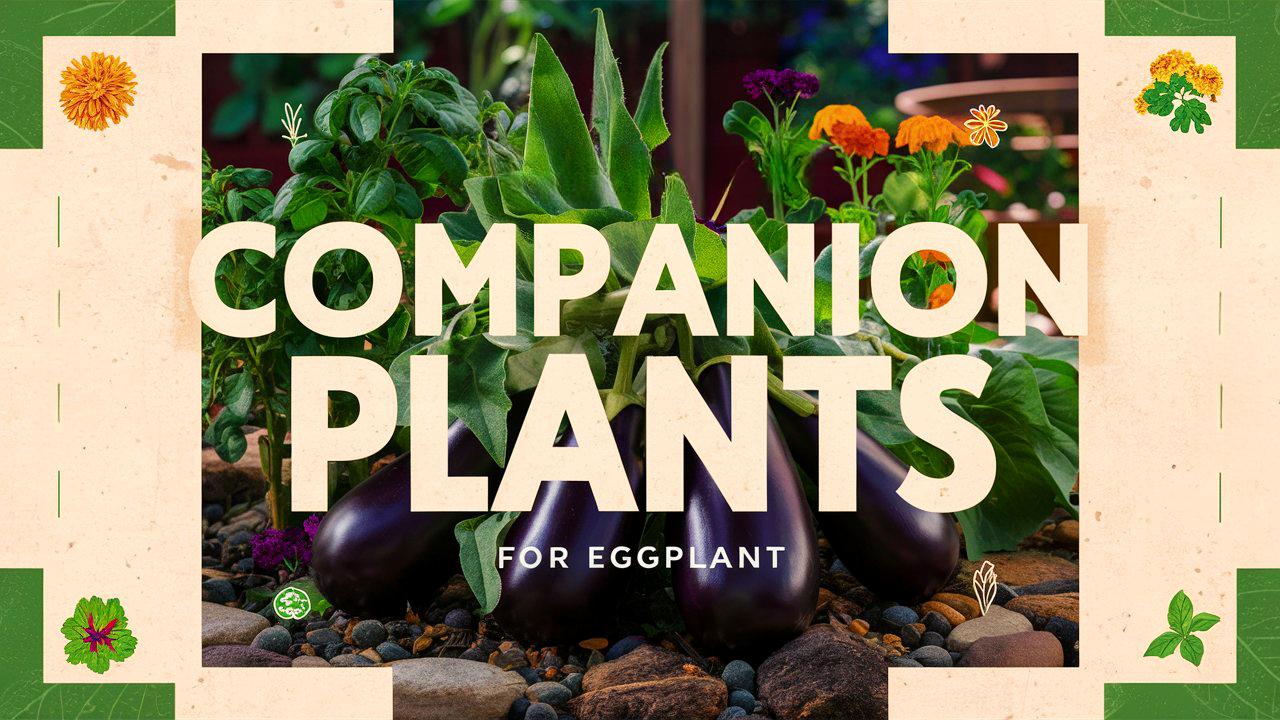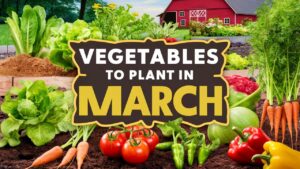Growing eggplant can be a delightful endeavor, offering both a beautiful addition to your garden and a delicious harvest. However, the success of growing eggplant can often hinge on choosing the right companion plants. Companion planting is an age-old practice that involves growing different plants together for mutual benefits, such as pest control, improved growth, and better yield.
In this guide, we’ll explore various companion plants that can enhance the growth of eggplant, segmented into flower companions, herb companions, and vegetable companions. Additionally, we’ll touch on plants best avoided alongside eggplant.
Flower Companions
Marigolds
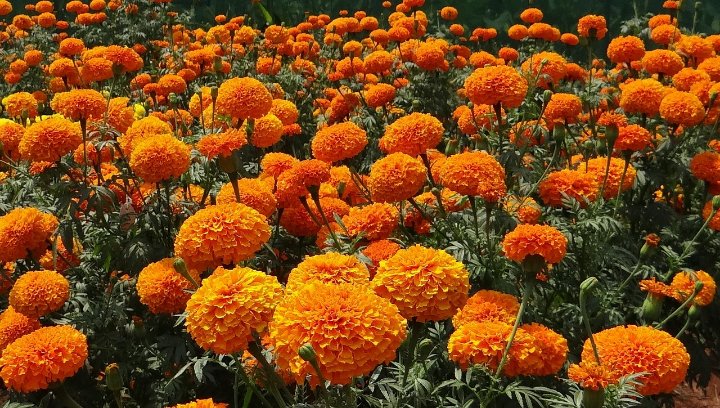
Marigolds are one of the most popular companion flowers for eggplant. Their vibrant blooms not only bring beauty to your garden but also serve vital roles in pest management. Marigolds produce a substance called alpha-terthienyl, which deters nematodes and certain harmful insects. Specifically, their presence can significantly reduce aphid populations, which are known to affectionately suck the sap from eggplants.
In addition to pest deterrence, marigolds attract beneficial insects, including ladybugs and lacewings, that prey on common garden pests. Planting marigolds alongside your eggplants can lead to healthier plants with fewer pest-related issues. The bright flowers can also act as a visual marker in the garden, helping you organize your planting layout more effectively.
Nasturtiums
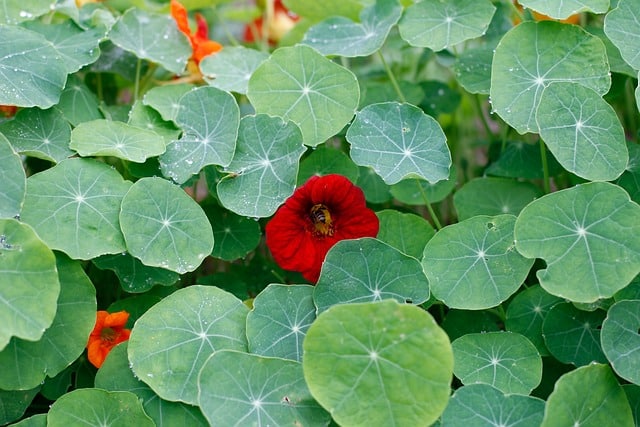
Nasturtiums are not just stunning edible flowers; they are also an excellent choice as companions for eggplants. Known for their peppery flavor, nasturtiums are particularly beneficial in deterring aphids, whiteflies, and squash bugs, which often plague eggplant crops. They act as a “trap crop” because pests are often more attracted to nasturtiums than to your eggplants, allowing these flowers to absorb the majority of the pest attention.
Moreover, nasturtiums can enhance the growth of nearby plants through their antibacterial properties. These flowers also provide ground cover, helping to prevent weeds from establishing themselves around your eggplants. Given their easy-to-grow nature and vibrant colors, nasturtiums can add a splash of color to your garden while doing wonders for your eggplant plants.
Calendula
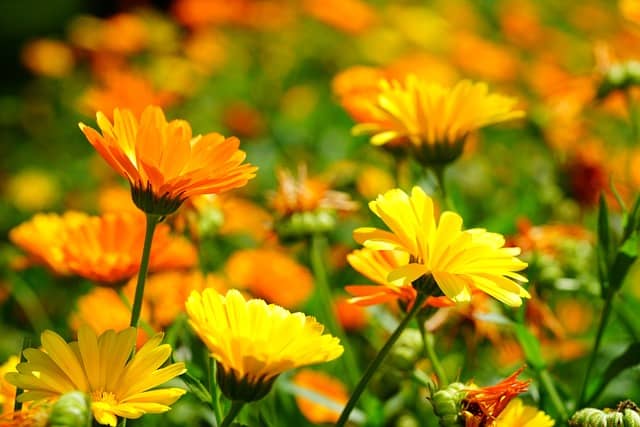
Calendula is another flowering companion that can support the health of eggplants. Commonly known as pot marigold, calendula flowers produce a resin that has natural insect-repelling qualities, especially toward aphids and spider mites. Their vibrant orange and yellow blooms are particularly attractive to pollinators, enhancing the overall biodiversity in your garden.
Calendula not only helps repel harmful insects but also attracts beneficial pollinators, which can lead to improved fruit set in eggplants. Additionally, the medicinal properties of calendula can be beneficial if you find yourself with any minor gardening injuries, offering healing properties that can soothe cuts and scrapes.
Herb Companions
Borage
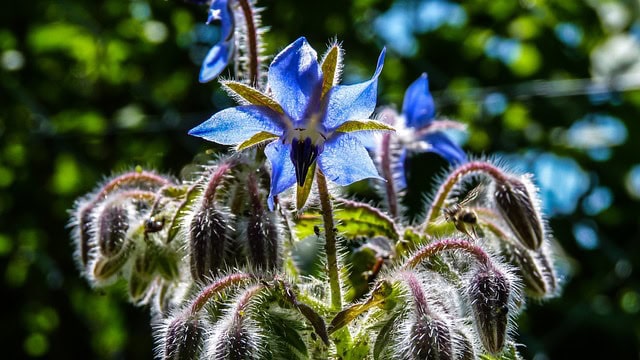
Borage is an exceptional companion plant for eggplants, known for its striking blue star-shaped flowers. Beyond its ornamental value, borage is celebrated for its ability to attract pollinators and beneficial insects such as bees and hoverflies. These pollinators can help increase yield and improve the overall health of your eggplant plants.
Additionally, borage is believed to improve the growth and flavor of nearby vegetables, including eggplants. The plant also has the ability to accumulate magnesium and potassium in its leaves, which can benefit neighboring plants when decomposed. Furthermore, borage is relatively easy to grow, thriving in various soil types and conditions, making it a no-fuss addition to your garden.
Dill
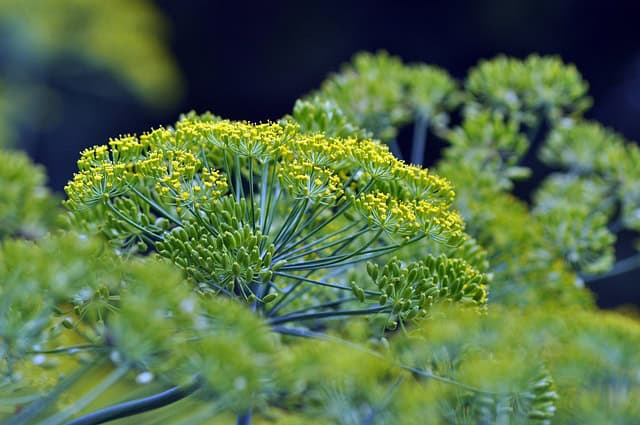
Dill is a fragrant herb that can provide excellent companionship for eggplants. It attracts hoverflies and parasitic wasps, both of which prey on aphids and caterpillars, commonly known pests in eggplant gardening. The feathery foliage of dill not only adds a unique texture to the garden but also serves as an aid in pest control.
Another benefit of planting dill alongside eggplants is its ability to enhance the flavor of nearby crops. Dill has a profound relationship with other herbs and vegetables, promoting their growth and vitality. However, one must be cautious; dill produces allelopathic chemicals that can inhibit the growth of other plants when it goes to seed. Thus, timing is key when growing dill alongside eggplants.
Oregano

Oregano is a perennial herb known for its culinary uses and strong aromatic scent, which can deter many pests. When planted near eggplants, oregano helps repel harmful insects including aphids and beetles that pose a threat to eggplant crops. Additionally, the dense foliage of oregano creates a microclimate that can moderate temperature and humidity levels, which is advantageous for the growth of eggplants.
Oregano is relatively low-maintenance and robust, thriving in well-drained soils and sunny environments. Its ability to grow in conditions that may cause other plants stress makes it a valuable companion for eggplants, particularly if conditions fluctuate.
Mint
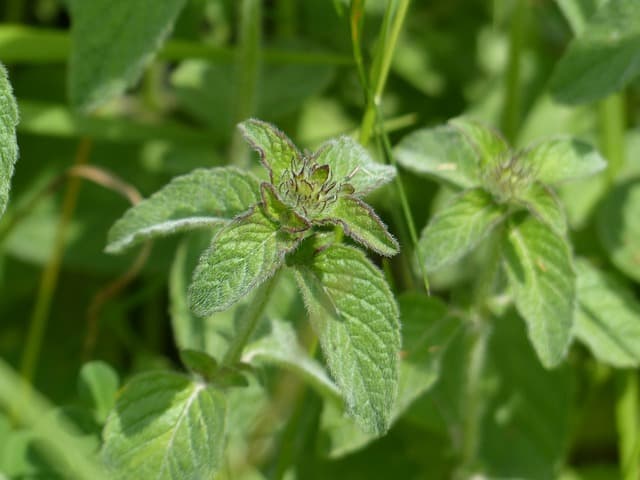
While mint is a favorite culinary herb, it can also serve as a companion plant for eggplants by repelling a variety of pests. The strong scent of mint tends to deter aphids, flea beetles, and spider mites, which are known enemies to eggplant growth. However, it’s essential to plant mint in confined spaces, such as pots, as it can become invasive in garden beds.
In addition to pest control, mint can enrich the soil, as it is a fast-growing plant that can promote biodiversity. The presence of mint may also help regulate soil moisture, which is crucial for eggplant health, especially during hot summer months.
Chives
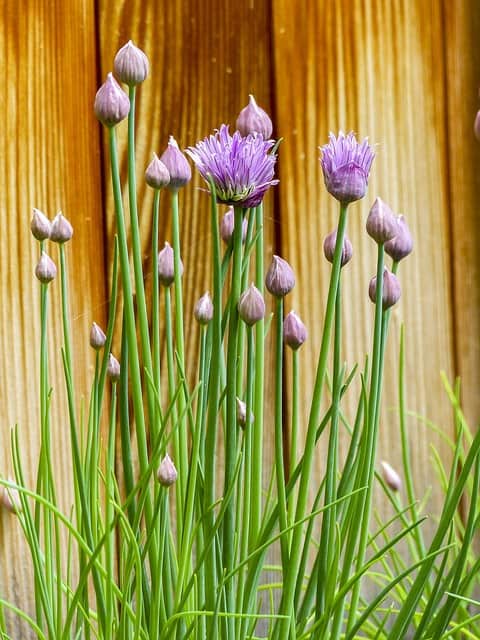
Chives belong to the onion family and can be great companions for eggplants. Their bulbs and leaves are known for their mild onion flavor, which can enhance culinary creations. One of the main advantages of growing chives near eggplants is their ability to deter pests such as aphids, which are notorious for infesting solanaceous crops like eggplants.
Chives produce delicate purple flowers that can attract pollinators, providing additional benefits to your garden. Like oregano and dill, chives prefer a sunny location and well-draining soil, making them compatible companions for eggplants. Their minimal care requirements and resilience make them an excellent choice for gardeners just starting out.
Vegetable Companions
Peas
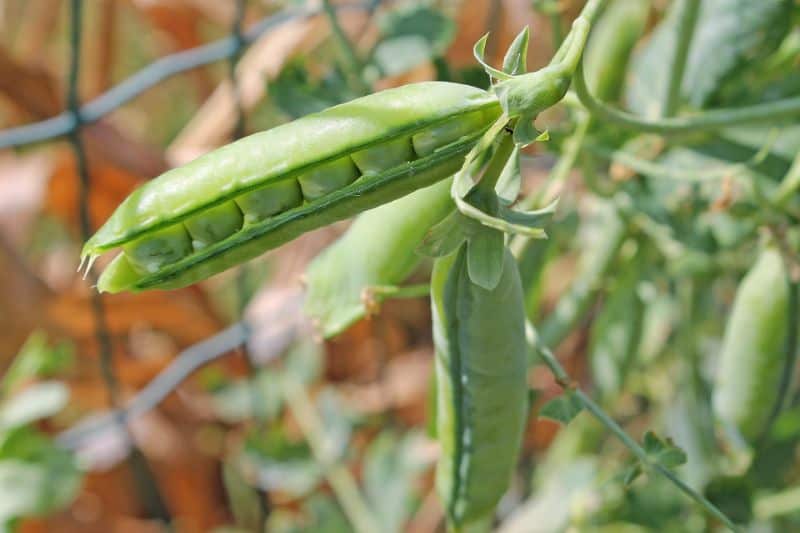
Peas are an effective companion for eggplants, particularly due to their nitrogen-fixing properties. As legumes, peas enrich the soil with nitrogen—a crucial nutrient that promotes healthy growth and overall vigor in eggplants. Moreover, sowing peas alongside eggplants can help suppress weeds, creating better conditions for the eggplant plants to thrive.
This pairing is particularly effective when peas are grown as a cover crop early in the season. Once the peas are harvested, they can be cut back to their base, maintaining useful nutrients in the soil while allowing the eggplants room to grow.
Garlic
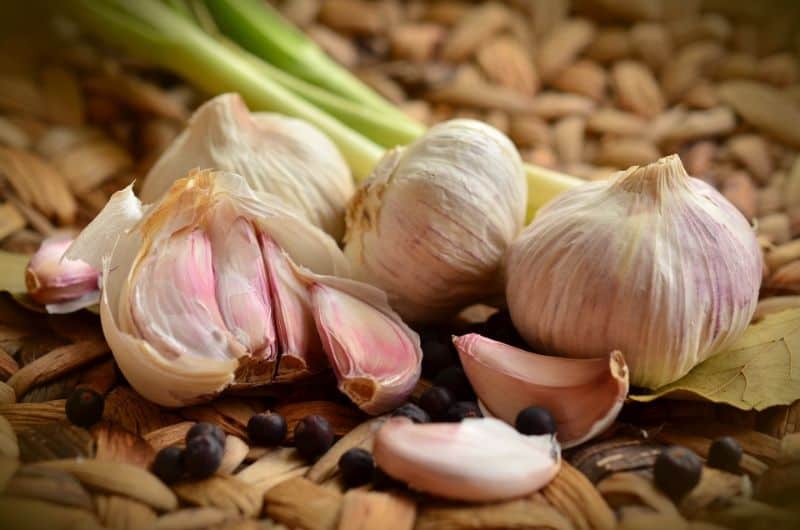
Garlic is legendary for its pest-repelling qualities and can be an excellent companion for eggplants. The strong aroma of garlic can deter harmful insects such as aphids, spider mites, and other pests that target eggplant foliage. Additionally, garlic has antifungal properties, which may help prevent diseases that can affect eggplant plants.
Planting garlic cloves around your eggplant beds is a great way to incorporate this powerful companion plant into your garden. Not only does it enhance pest management, but it also offers culinary benefits when harvested.
Beans
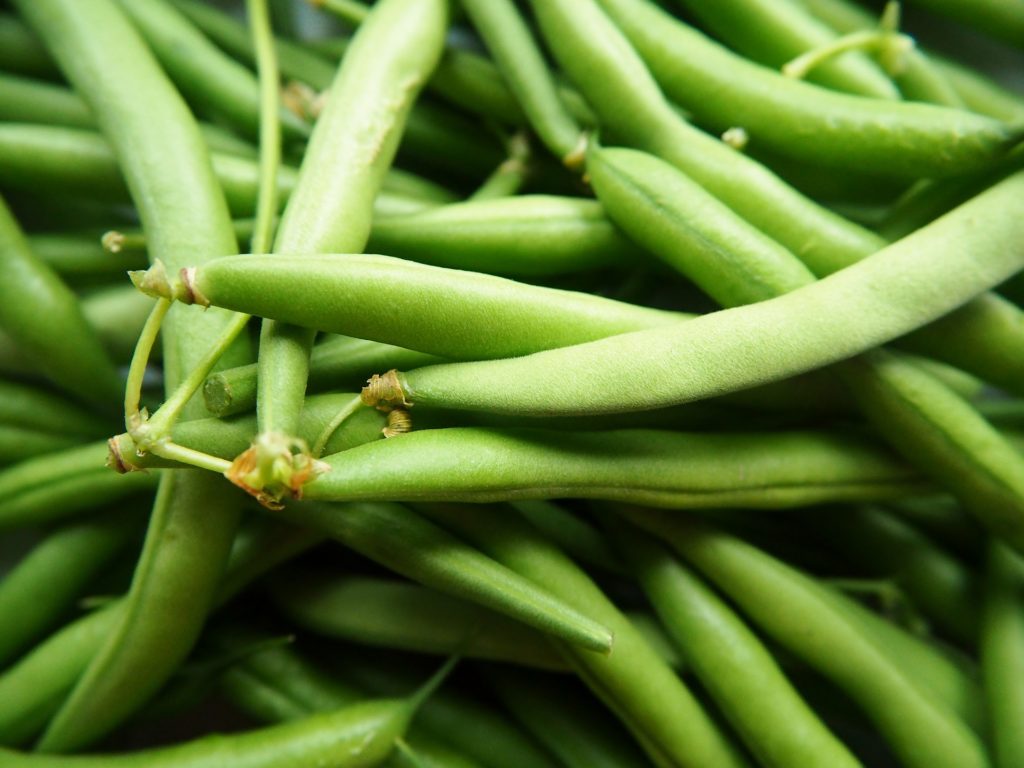
Beans, particularly bush varieties, serve as indispensable companions for eggplants due to their nitrogen-fixing abilities. When beans are planted nearby, they can naturally enrich the soil, reducing the need for chemical fertilizers. The structure of beans also provides a living trellis that offers shade and support for the more sprawling eggplant plants.
Moreover, the pairing of beans and eggplants can lead to a phenomenon known as allelopathy, which is when one plant produces substances that benefit the other. This synergistic relationship helps both crops thrive in terms of growth and flavor.
Peppers
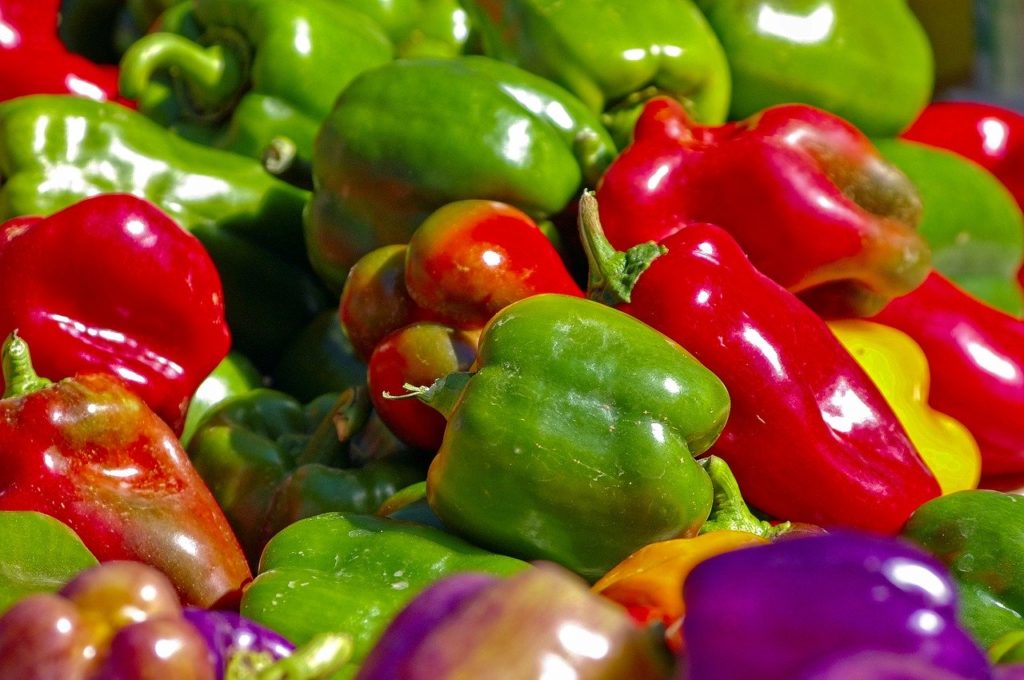
Both eggplants and peppers belong to the nightshade family, making them compatible in terms of nutrient requirements and pest resistance. Planting peppers near eggplants can help attract the same beneficial insects, thereby promoting a healthier garden ecosystem.
Additionally, peppers require similar growing conditions to eggplants—both prefer warm weather and well-draining soil. Ideally, growing these two plants together can maximize your garden’s space while enjoying a bountiful harvest.
Onions
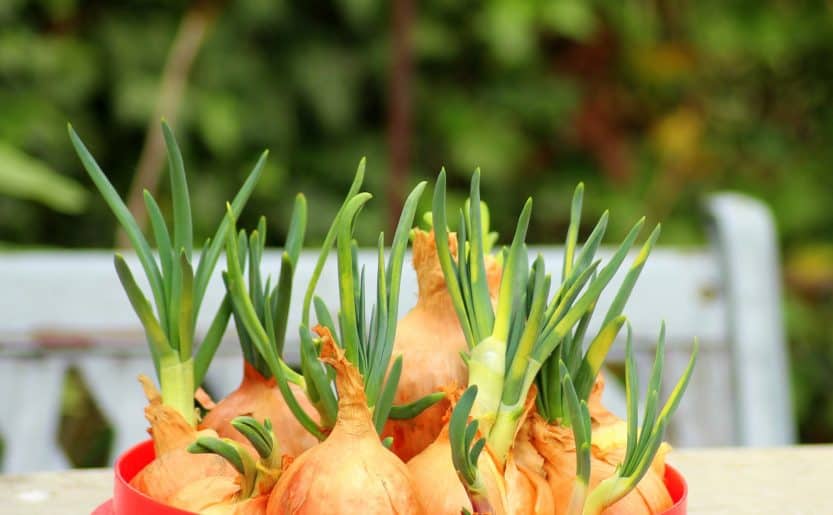
Onions can be fantastic companions to eggplants, as their pungent scent acts as a deterrent against many pests, including aphids and flies. When planted together, onions and eggplants often provide mutual benefits, as the competitive nature of onions can help keep weeds at bay.
Moreover, onions and eggplants typically have similar sun and water requirements, allowing for efficient garden management. Their compatibility not only leads to healthy crops but also makes for delicious culinary pairings.
Potatoes
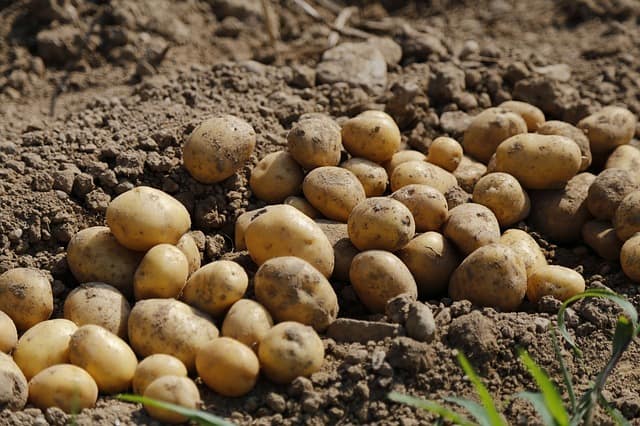
Although the relationship between potatoes and eggplants is nuanced, these two plants can thrive alongside one another, particularly concerning pest resilience. Potatoes are known to deter certain pests that may afflict eggplant, thus providing a protective element.
However, it is essential to manage crop rotation and avoid planting these two together in the same soil during consecutive years, as they can share diseases such as blight. Instead, consider planting these crops in alternating years for better overall garden health.
Radish
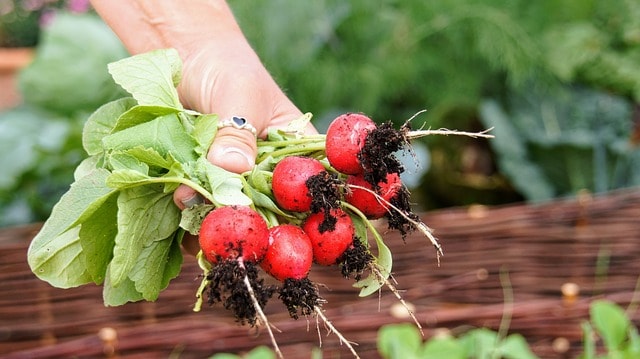
Radishes are quick-growing crops that can be planted alongside eggplants, helping to break up the soil structure. Their fast growth can also shade the soil, which is beneficial for maintaining moisture levels essential for eggplants.
Moreover, radishes are known for their pest-repelling qualities. Planting them close to eggplants can help deter pests such as aphids and flea beetles, meaning your eggplants will have a lesser chance of infestations.
Beets
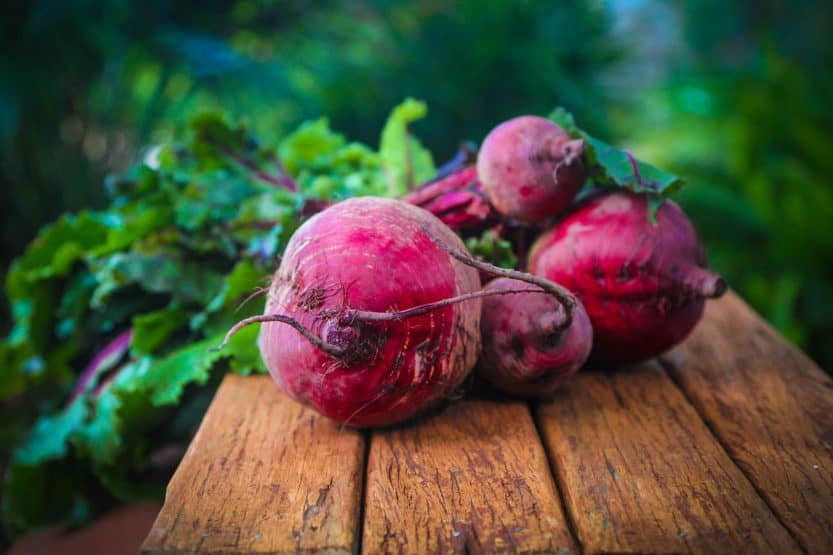
Beets can be another good option when considering companions for your eggplants. Both plants thrive in similar soil types and climatic conditions, which makes them easy to cultivate together. One notable benefit of growing beets near eggplants is the way both plants can help each other with moisture retention.
Moreover, beets can create a ground cover that minimizes the growth of weeds, allowing eggplants to focus their energy on producing fruit. Additionally, the contrasting colors of beet greens and eggplant plants can create a visually striking garden.
Carrots
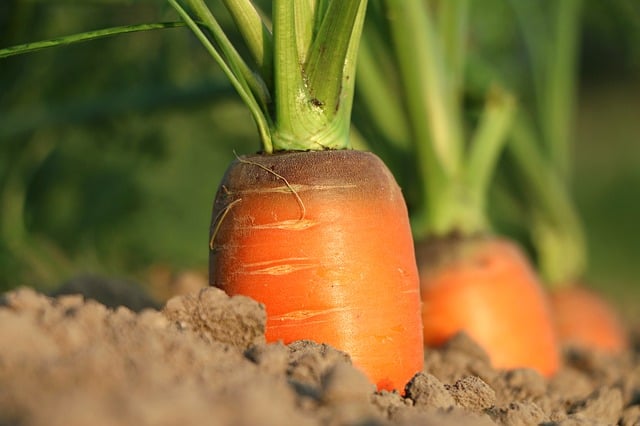
Carrots are ideal companions for eggplants as they have deep taproots that help aerate the soil, improving drainage and nutrient penetration. The contrast in root depth means that both plants can effectively utilize space without competing for nutrients.
Furthermore, the foliage of carrots can provide shade for eggplants, helping to create a more moderated environment for their growth during the hotter months. This companionship can lead to healthier and more productive plants.
Kohlrabi
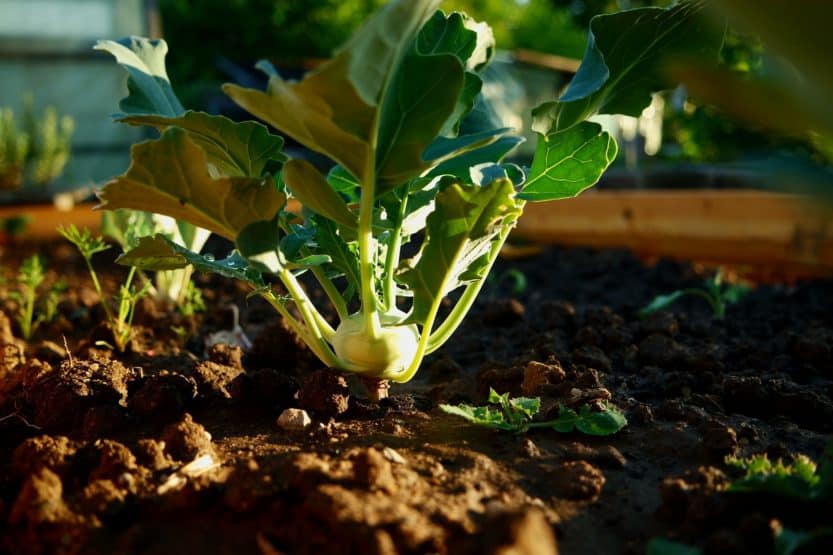
Kohlrabi, a member of the Brassicaceae family, can coexist well with eggplants due to its unique growth habit. The bushy nature of kohlrabi can help provide shade and reduce the competitive pressure from surrounding weeds, creating a favorable environment for eggplant growth.
Moreover, kohlrabi’s ability to deter some pests can protect nearby eggplants. Their contrasting textures also add aesthetic appeal to your garden, complementing the more sprawling growth of eggplants.
Swiss Chard
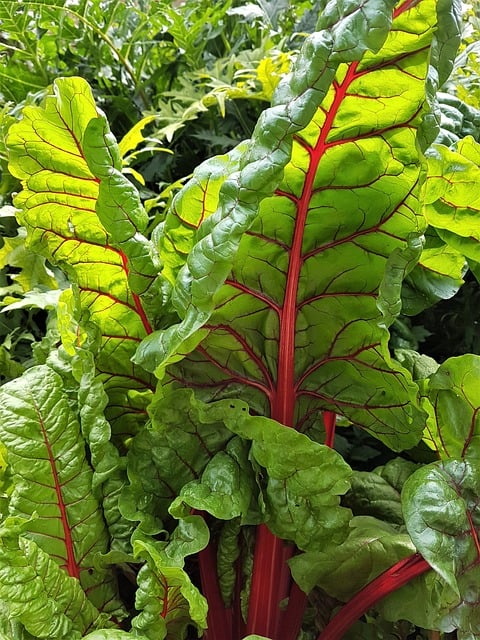
Swiss chard is a leafy green that can thrive alongside eggplants, especially in smaller garden spaces. Chard’s broad leaves can provide a natural mulch effect, helping retain moisture and suppress weeds around eggplant plants.
Additionally, both plants share similar nutrient requirements and growing conditions, making Swiss chard an uncomplicated companion for eggplants. Their vibrant colors together can create a visually appealing and productive garden.
Lettuce
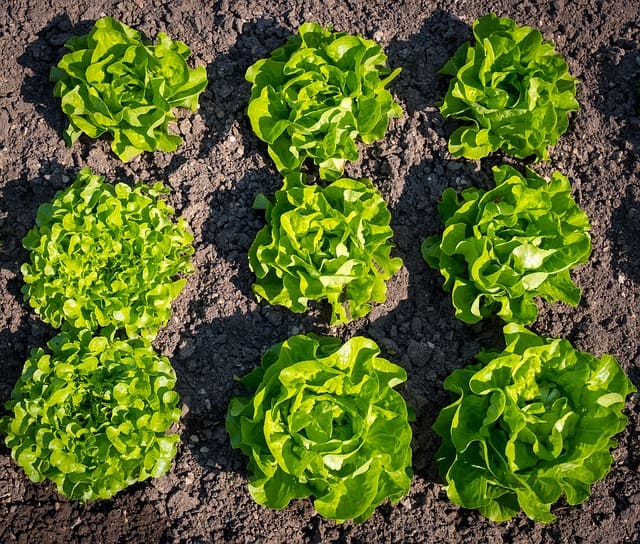
Lettuce is another versatile companion plant for eggplants. Its shallow roots mean that it occupies a different soil strata than eggplants, which allows both plants to thrive without competing for space.
When planted early in the season, lettuce can be harvested before eggplants reach maturity, creating an efficient use of space. Furthermore, lettuce provides ground cover, reducing weed growth while the eggplants establish themselves.
Spinach
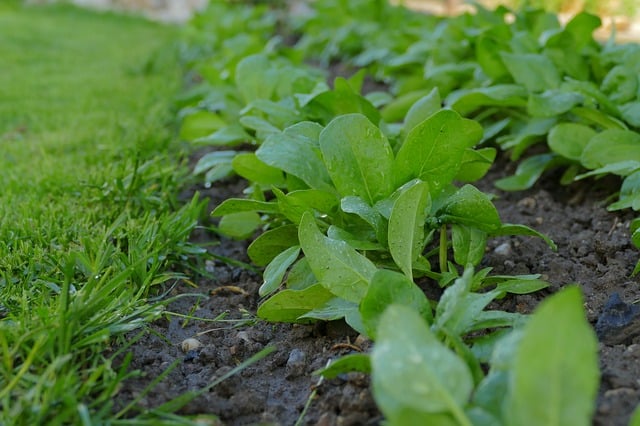
Spinach, like lettuce, can offer several benefits when planted alongside eggplants. Its rapid growth and ability to mature quickly allow for early harvest, giving eggplants more space as they begin to sprout in the warm months.
Spinach prefers similar growing conditions and can benefit from the shade produced by the taller eggplant plants. This companion relationship helps maximize garden productivity in a synergistic manner.
Plants to Avoid With Eggplant
While many plants can thrive alongside eggplants, certain plants should be avoided as companions due to potential negative interactions.
Geraniums
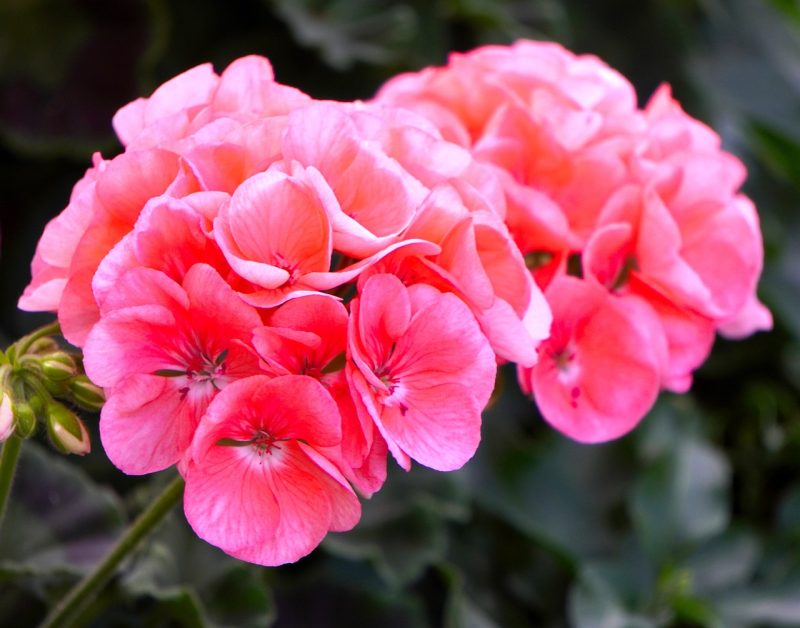
Geraniums, while beautiful, can hinder the growth of eggplants. They release allelopathic chemicals that can impair the growth of nightshades, including eggplants. Their presence may lead to stunted growth and reduced overall health of nearby plants.
Pumpkins
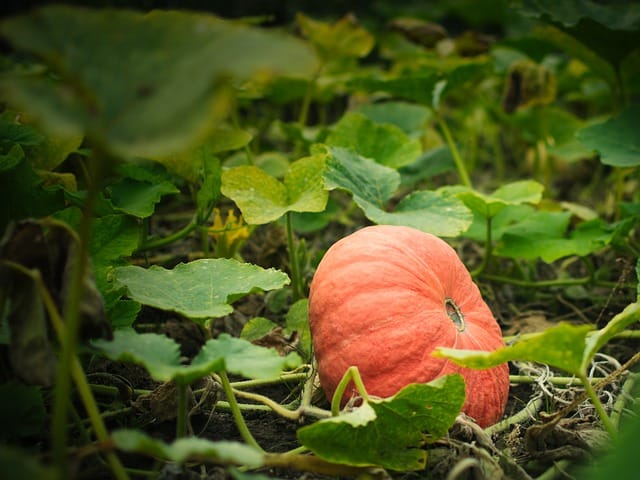
Pumpkins are prolific growers that can monopolize garden space and nutrients, making them incompatible with eggplants. Their sprawling vines might compete for sunlight and water, ultimately harming the health of your eggplant plants.
Corn
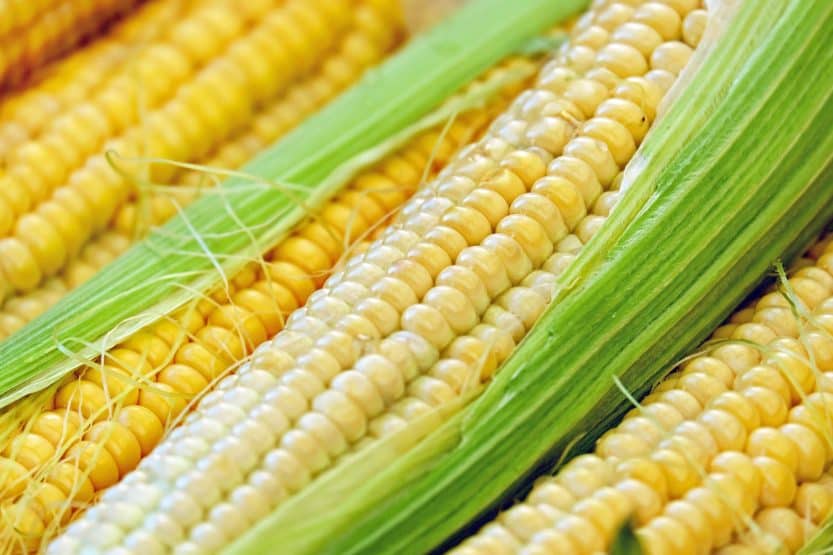
Corn can be problematic when grown near eggplants due to shared pest pressures; both attract the same corn earworm and other pests. Additionally, corn requires extensive amounts of nutrients and moisture, which can detract from the necessary resources needed for eggplant development.
Melons
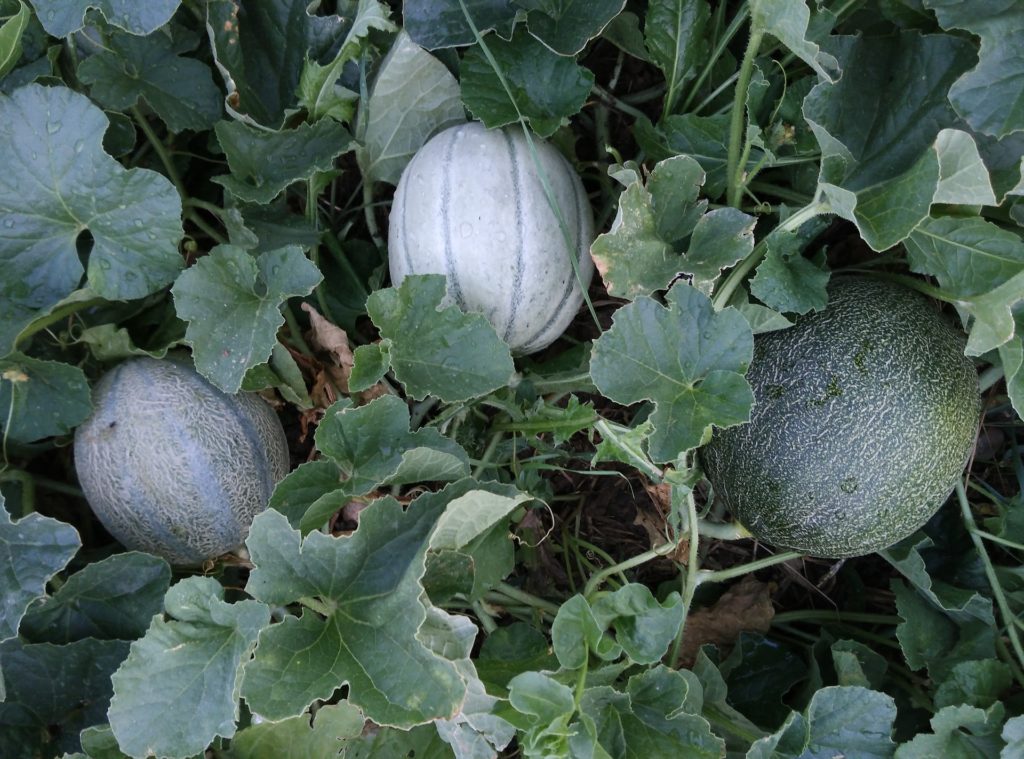
Melons also compete heavily for space and resources. Their vigorous growth habit can overshadow eggplants and cause a struggle for sunlight and nutrients. Furthermore, melons can attract pests that are likely to target eggplant crops as well.


